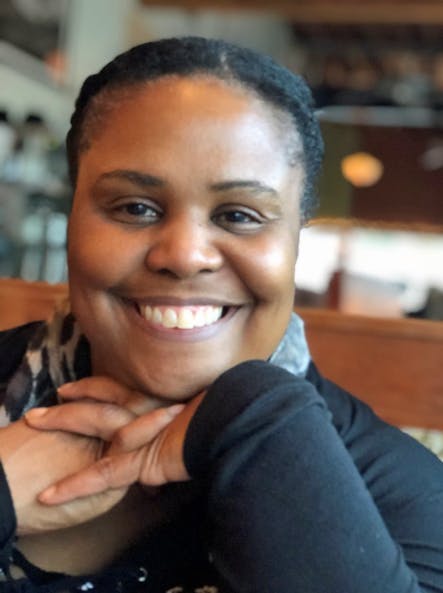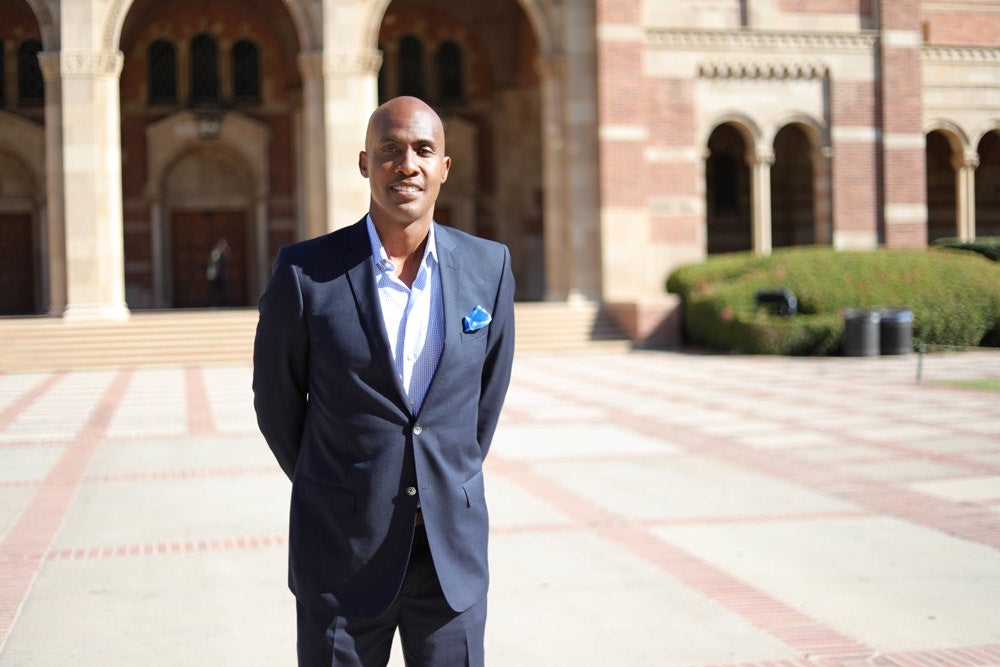More than 400 attendees took part in a UCLA Connections conversation titled, “Processing Racial Trauma,” featuring Nicole Green, PhD, executive director of UCLA Counseling and Psychological Services, and UCLA Professor of Education Tyrone Howard on June 10.
Green and Professor Howard, founder and director of the Black Male Institute at UCLA, discussed the ways that racial trauma takes its toll on mental, emotional, and physical health and ways to address these effects on individuals, families, and communities.

Green stated that the ongoing racism that Black people face is not isolated to recent events, but “a pervasive and insidious and systematic assault against our people that’s been going on for generations. The trauma is not one trauma.” She said that the day-to-day conditions of dealing with racism manifest themselves in stress on the immune system, as evident in the high rates of diabetes, asthma, heart disease, and COVID-19 among African Americans. She also underlined the anxiety that Black people live with daily that stems from the hypervigilance that racial incidents can occur at any moment.
“You hear about Black men, Black people who don’t sit with their back to the door – always on alert: ‘I don’t know when the next thing is coming. I don’t know if I’m going to be ready to respond,’” noted Green.
“It’s sort of the way we are. We live simultaneously always on alert, simultaneously exhausted, simultaneously angry, and simultaneously grieving. All that’s happened before happened to our families, it’s happened intergenerationally to us.”
Green said that White friends and colleagues need to understand that Black people are “tired” and should not feel obligated to respond to others’ questions about the current unrest. She said that there is also some guilt among Black people who are not continually staying actively engaged in movements against injustice.
“I want to say that one of the struggles that we as a community have is trying to find a way to be … committed, but to give ourselves permission to also thrive when we’re in times like this,” she said.
Howard said that the idea of “racial battle fatigue,” as described by William A. Smith of the University of Utah, has resulted from the onus on Black people to be the ones to illuminate society about the racialized culture and trauma that they live in.
“For Black folk and other folk of color, there’s this tiredness that you experience from constantly having to be the person who is trying to explain, trying to educate, trying to enlighten, with scenario after scenario, example after example,” he said. “You just feel exhausted at times. At some point, you really start to feel this sense of, ‘I don’t know how much more I can say that same things over and over again… to react over and over again. I want to feel my own emotions … because I’m a human being and I deserve that.’
Green offered taking care of one’s basic needs, self-affirming activities, and regulating intake of social media among her suggestions for coping with the effects of the current climate around race and racism. She also expressed the dangers of gaslighting and denial that exist, but also her wish to remind Black people that, “we are more than our trauma.”
“We are brilliant. Often, we are co-opted and there is an appropriation to us. But there is so much to us that is valuable. Trauma is a huge part of our identity, but it’s also not all of our identity. There is a lot that we can engage in – just Black joy and freedom.”
“We all respond to these traumas and these moments in our own unique ways,” said Professor Howard. “I don’t think we can engage in this process as sort of determining our level of commitment, to show how much we’re supportive of a particular issue, whether we show up or not. Just being human in this moment, staying sane in this moment, is enough to let you know that you are still processing.”
Professor Howard also directs the UCLA Pritzker Center for the Strengthening of Children and Families, and will take the helm as faculty director of the UCLA Center for the Transformation of Schools on July 1.
Visit this link for Howard’s recent commentary for Education Week on “How to Root Out Anti-Black Racism from Your School.”
To view “Processing Racial Trauma” with Nicole Green and Tyrone Howard, visit the UCLA Connections site.
